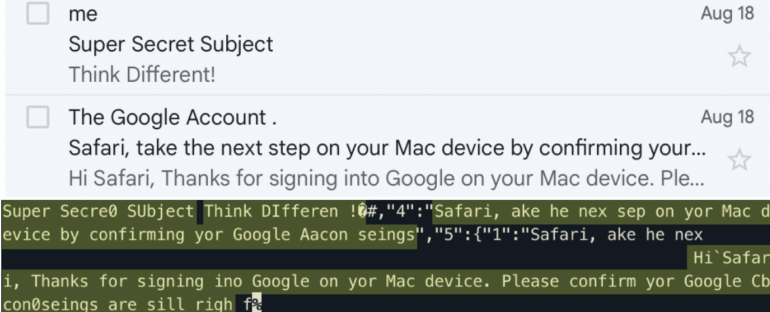Products You May Like
This Safari vulnerability has not been exploited within the wild. Apple provides a mitigation, however the repair must be enabled manually.

Safety researchers from three universities have found a serious vulnerability in Apple’s iOS and macOS, together with the Safari browser. The vulnerability, which the researchers named iLeakage, allows risk actors to learn Gmail messages, reveal passwords and uncover different private info.
The vulnerability impacts macOS or iOS units working on Apple’s A-series or M-series CPUs, which embrace all fashionable iPhones and iPads, and laptops or desktops launched since 2020. Macs can solely be attacked when utilizing Safari, however cell units are susceptible when utilizing any browser.
The researchers disclosed their findings to Apple on Sept. 12, 2022, and made the findings, in addition to a analysis paper, public on Oct. 25, 2023. The iLeakage vulnerability has not but been exploited within the wild as of October 27.
Bounce to:
How does the iLeakage vulnerability work?
The iLeakage takes benefit of a transient execution facet channel, which is a efficiency optimization characteristic of contemporary CPUs. The actual facet channel concerned right here is speculative execution, which may be susceptible to a {hardware} hack often called Spectre. Attackers can detect traces of speculative execution in CPUs, significantly the cache. Attackers can power the CPU to speculatively execute the incorrect circulation of directions. Then, the attackers can learn delicate information contained within the ensuing facet channel (Determine A).
Determine A

The researchers who found the vulnerability are Jason Kim and Daniel Genkin of the Georgia Institute of Expertise, Stephan van Schaik of the College of Michigan and Yuval Yarom of Ruhr College Bochum.
“Code running in one web browser tab should be isolated and not be able to infer anything about other tabs that a user has open,” the researchers wrote on their website about iLeakage. “However, with iLeakage, malicious JavaScript and WebAssembly can read the content of a target webpage when a target visits and clicks on an attacker’s webpage. This content includes personal information, passwords or credit card information.”
The researchers demonstrated iLeakage by organising an internet site that opens up a hidden window on the goal’s machine.
The researchers speculate that this vulnerability has not been discovered within the wild as a result of it’s troublesome to orchestrate, requiring detailed information of Safari and of browser-based facet channel assaults. Nevertheless, iLeakage is essential to find out about due to its novel method and since the variety of units doubtlessly open to exploitation by way of iLeakage is so excessive.
TechRepublic has reached out to the researchers for extra info.
SEE: The whole lot you might want to find out about Apple’s iOS 17 (TechRepublic)
The best way to defend in opposition to iLeakage on Apple units
Apple has enabled a mitigation for iLeakage in macOS Ventura 13.0 and newer releases, however it takes some work to seek out it. To activate the mitigation, follow the instructions posted on the iLeakage site under “How can I defend against iLeakage?” to access Safari’s debugging menu. From there, you will discover WebKit’s inside options and an choice to disable swap processes on cross-site window openings, which prevents the iLeakage exploit from working.
Additionally, coming into Lockdown Mode or disabling JavaScript prevents the iLeakage exploit from working, however doing so might trigger a few of Safari’s options to not work.
iLeakage may be laborious to hint as a result of it doesn’t seem within the system’s log information, the researchers stated; as an alternative, iLeakage resides solely inside Safari. Some proof of the attacker web site internet hosting iLeakage could also be seen in Safari’s browser cache of lately visited pages if an assault has already taken place, the researchers stated.
